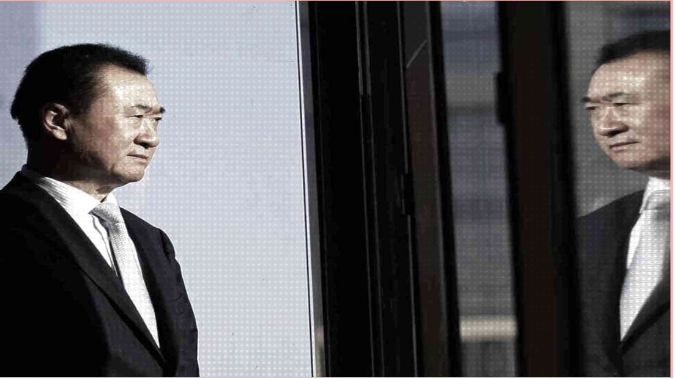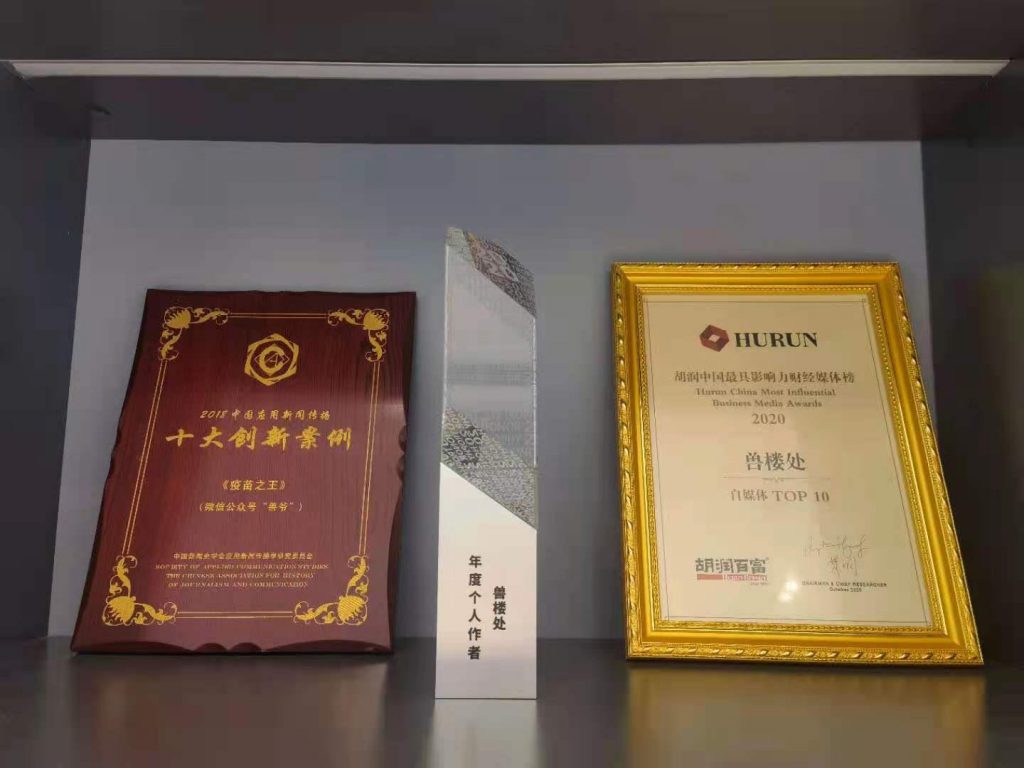Finding a Niche With Innovative Stories

Fang Kecheng

Shou Ye
From Southern Weekly to Jiemian: Tangled Interests and the Decline of Print Media
Fang Kecheng: It’s been a long time. It was years ago that we were colleagues at Southern Weekly. I left the newspaper in 2013? And you?
Shou Ye: I joined Southern Weekly in 2010, and left in May 2014. Even though I no longer wanted to stay with print media, I still was really interested in journalism. At that time, preparations were just underway for “Jiemian News,” a new media experiment in the Shanghai newspaper market. So I went to Jiemian, because I was really interested in new media. When I went to Jiemian, the team was just 30 people. Now there are more than 1,000.
In those early days at Jiemian, everyone actually had few ideas about the future. But everyone believed that the whole environment had already undergone major change. The print media were finished, and even if you stayed on somewhere you were only managing your way through its death. Everyone could see where things were heading.
Do you remember when Deng Ke (邓科), who was on the editorial board of Southern Weekly and head of the Beijing news desk, left for his own entrepreneurial venture? Before he left he brought a number of us together at a café for a meeting. He said that print media were like the horse and cart industry at the end of the 19th century, and that it would slowly vanish. As soon as Deng said that we further lost our confidence in the print media.
I was on the economics desk at Southern Weekly, and actually I was quite bored at the time. Around 2015 there was this intern that put together these materials about which articles over the past four years had been removed (被和谐) from the Southern Weekly website, and mine were at the top of the list.
Fang Kecheng: So what did you decide then?
Shou Ye: So I went to Jiemian to lead the real estate team. There were maybe 10 of us. Later on, actually, it went beyond just real estate. We also did some more investigative reports. That was the best team they had at Jiemian at the time. Jiemian had been live for one year at that point, and most of the stuff that got the most traffic was stuff we contributed. And in China, the most core advertising revenues come from real estate and from the auto industry.
Later on, I left Jiemian for my own reasons.
Innovating to Make Financial Journalism “Cool”
Fang Kecheng: After you resigned from Jiemian, how did you begin your own new media venture?
Shou Ye: It was during the first half of 2017 that I resigned from Jiemian, and after that I took a break for about half a year. There were two other reporters who left Jiemian along with me, and they had been with me since they were interns. They waited for me, wanting to do something together. I said, OK, then let’s open a few public accounts [on WeChat] and rent ourselves an office. Let’s keep doing what we did before.
“Shou Lou Chu” (兽楼处) was actually a WeChat public account that I had registered in 2016, and in 2017 I started writing a bit for it, maybe one piece or so a month. Then, from the end of 2017 and into 2018, we started updating it on a regular basis. [NOTE: “Shou Lou Chu” here is a homophone of the word for “property sales office” (售楼处)].
Toward the end of 2017 we had two articles in particular that had a major impact. At that time the “Shou Lou Chu” fan base was only around 200,000. In November we finished writing an article about the campaign in Beijing to clean out the “low-end population” (低端人口). That one was called, “Beijing Finally Collapses” (北京终于折叠). Suddenly our fans doubled from 200,000 to 400,000, but afterward our account was blocked for a month.
I had another account called “Free Shipping Zone” (包邮区). The second piece, which was published on “Free Shipping Zone,” was called, “Wang Jianlin’s Waterloo” (王健林的滑铁卢). That piece had a huge impact, and our fans shot up to 300,000. This piece [which looked at Dalian Wanda Group’s widespread sale of assets] was probably for Wang Jianlin at the time a really bone-crushing piece, and it was really stressful for us at the time. But our [professional] position in the entire industry was immediately established.
In March 2018, we rented our first office, this really small 60 square meter space. At the time we had just the two public accounts in our hands, with around 700,000 fans. The three of us continued writing things as we always had, using pretty much exactly the same methods we had at Southern Weekly and at Jiemian. But we packaged our stories more nicely.
When we were at Jiemian, in fact, there were certain things that vexed us. Because the team I led wrote really decent articles — the best in the business, you might even say. We involved ourselves in all of the major stories in the real estate sector at that time, from the listing of Wanda to the dispute between Vanke and the Baoneng Group. And our reports were really the best in the industry. But you find that its impossible to compete with the self-media (自媒体) [on platforms like WeChat]. They change the headline around [on your report], slightly change things, and then their readers go through the roof.

The clearest example of this was during the default of the [Shenzhen-based] Kaisa Group [on its US-dollar denominated bonds in 2015], when our report actually influenced the way things developed. The crux was that our exposé put an end to the planned acquisition of a controlling stake by Sunac. At that time PricewaterhouseCoopers was preparing to report Kaisa, and report [Sunac chairman] Sun Hongbin (孙宏斌). As soon as we reported this, Sun Hongbin ended his buyout plans, and there was no way that the purchase of the controlling stake in Kaisa was going to succeed.
After we finished our report, we had around 10,000 hits on the story on our own website. Other self-media, though, would just sit and wait for our stuff to come out, and then they’d immediately change the headline and re-run it. There were two self-media accounts that would wait on us every day, and would get around 100,000 reads [on their re-posts of our stuff], while on our own WeChat public account [for Jiemian] we would get maybe 5,000 reads.
At the time I spoke to our leaders at Jiemian and said we definitely had to change the way we wrote. Our way of writing was entirely no good, already so outdated. Our writing was from the last century. It was the writing style of the 21st Century Business Herald, of China Business News, or even you could say the writing style of The Wall Street Journal. This style of writing was completely unsuited to the times. I spoke to the boss twice about this. I said that our style needed to be innovated, and that if we didn’t no one would read our stuff. No way, the boss said. This was too risky.
Fang Kecheng: Why risky?
Shou Ye: Well, first of all, the language would be too lively, too sharp. Our sponsoring institution (主管部门) would probably not have agreed. Secondly, a more innovative stylistic approach might have mean an even bigger impact on the companies about which we were reporting, and the exposure to risk would therefore be greater.
Fang Kecheng: If you think about it, using a “Shou Lou Chu” style of writing at an institutional media outlet does seem pretty unlikely.
Shou Ye: We made a proposal at the time, that we register a public account and use the public account as a way to innovate the way we wrote – not putting it on the official website.
Fang Kecheng: The same way that the People’s Daily public account tries to be down-to-earth, with content that differs quite a bit from the newspaper.
Shou Ye: But later on I dropped this proposal. After I resigned, I started doing it this way myself. I thought for perhaps six months about resigning, because in 2017 I felt that the whole self-media industry might have peaked, and that there wouldn’t be any opportunities to break new ground.
On March 8, 2018, we rented that first office. And on March 9, I called a meeting there and said three things. First, we had only a one-year window to get this thing off the ground, and if we managed to seize the opportunity then we could make it work. We had a definite foundation with our two public accounts, which had some influence within the real estate and financial circles even if our fan base wasn’t huge. With this foundation, if we could seize on the first year to get things going, then I felt there wouldn’t be too many problems.
Second, there was the question of our core competitiveness. We had all been in the media before, and in the traditional media we had excelled above others. In the self-media era we could also innovate stylistically (文本创新), and our articles would be better than others’.
Fang Kecheng: How did you arrive at this stylistic innovation? What was your method?
Shou Ye: By dint of our own efforts, I guess. Actually, there was no point of reference. The core value was really about everyone feeling after reading something that it was cool (爽). We were using a “cool style” (爽文) of writing to approach financial reporting. Coolness is also a value, an if the information is there then it will have a huge impact in the market. I think maybe this also came from having in the past read online novels in the “cool-style” (爽文类).
Fang Kecheng: Do you feel that if the writing of financial journalism borrows from online novels this will in any way compromise quality?
Shou Ye: There is no compromise on quality. Actually, you take the reports themselves and the core content is basically the Southern Weekly report. It’s only that in order to create a sense of excitement in the reading there might be stylistic changes to different parts. The informative core has not changed. It’s still the Southern Weekly style of reporting.
Fang Kecheng: Do you think there is any change in the way people receive the information?
Shou Ye: First of all, they really enjoy it. It’s really clear that people love reading this kind of stuff. In terms of information, our reports are generally pretty dense. In the past, at Southern Weekly, the core problem was that of the page. You definitely had to fill the page, so you wanted 3,000 characters, or 5,000, otherwise you’d have blank space (开天窗). But now we can just get rid of all the crap and ensure that there is enough information. If there’s not enough information, and there are too many rhetorical flourishes, then people just won’t keep reading.
Fang Kecheng: But in the pursuit of “cool writing” is there a danger that you’ll have more emotive language and a stronger subjectivity creep in? This would be in conflict with the general sense we have of journalistic practice.
Shou Ye: To be honest, what we do does not really resemble news journalism so much. Owing to policy reasons, we can’t really go and do news reporting anyhow. So all along we’ve been experimenting with a “de-newsing” (去新闻化) approach. At its heart this is about offering a statement of opinion as we provide everyone with information, and this judgement is really based in consensus. Those things that may seem counterintuitive, we definitely want to go ahead and say them.
“The Vaccine King” Puts the Platform on Ice
Shou Ye: During the first year, I really wrote a lot of articles. I wrote about things all across the industry, and in a lot of cases had an impact. This includes “The Vaccine King,” which I wrote in July that year. There was immense pressure on us after I wrote it, but two days later the premier [Li Keqiang] added his written comments on it, and after the General Secretary [Xi Jinping] added written comments on day three then there was no longer any danger for us.
Fang Kecheng: Why in the first place did you want to write about vaccines on a public account chiefly dedicated to real estate?
Shou Ye: That goes back to an announcement released by the China Food and Drug Administration in mid-July. It was on a Sunday that I spotted it. We discussed the matter in the group after we read it, and during the discussion, we felt that the vaccine issue was quite serious — more serious than the melamine incident [back in 2008]. But this was something we couldn’t write about. It should be something for Southern Weekly, or for Caijing magazine, or for Caixin. I said, let’s wait and see. Let’s wait for them to report it.
On Monday I went back home and looked through our vaccination record, and I found that our child’s diphtheria vaccine had been manufactured by Changchun Changsheng (长春长生), the very same company. The announcement from the CFDA said that 100s of thousands of doses of Changchun Changsheng’s rabies vaccine had been found to be sub-standard. So I felt even more that this situation was really serious.
Two days after the notice, on the third day, there were media reports, but they had little impact. The fourth day was a Thursday, and we had a planning meeting that afternoon. We felt that if we didn’t write anything about this, the story was just going to pass right by. So, we thought, why not just try?
Another colleague Bao Shu (包叔) and I started doing our homework. He did the core of the writing. I edited the story that Saturday. The gist of it was that as we pored through all of this company’s share prospectuses (招股书) and annual reports, we found a litany of misdeeds. Moreover, this company was linked to several other companies that all themselves had long lists of misdeeds. So we wrote it all up. Once it was written that morning, all of us knew this was going to be a big deal, and also that it was likely to result in a lawsuit.
Around 10AM I had finished editing it, and at 11AM I sent it to our lawyer, who looked it over and changed a few things, because two of the vaccine companies had actually sued media before. Not only had they sued media, but they had sued individual reporters and in three cases had won. We prepared ourselves for a lawsuit. It was around noon that it was finished and we posted it. By afternoon everything exploded.
I fell asleep on the sofa that afternoon, and the whole time the phone kept ringing. That night a friend of mine was having his birthday, and around 8PM I went over to his place for dinner. Sometime after 8, this friend said to me: Your article has been deleted. The next day, Premier [Li] added his written comments, and then the day after that the General Secretary [Xi] added his written comments. Such a thing had probably never happened before within the financial industry – that is, something having such a huge impact, with the premier and general secretary commenting and then eventually a Vaccine Administration Law and China Association of Vaccines being born as a result. In the past, Southern Weekly reported on vaccines, and Caijing magazine reported on vaccines, but nothing had brought change to the industry before.
Once “The Vaccine King” was out, I thought about things for a couple of days. After the premier issued his written comments, I called a meeting with colleagues, because the vaccine story was likely to have a huge impact not just on us but on the entire self-media sector.

Fang Kecheng: So on the one hand the written comments were a good thing for this particular article of yours, but on the other hand you felt this would also mean that the industry would face more oversight.
Shou Ye: At the end of 2018 a lot of public accounts were shut down. The first thing to be targeted was unscrupulousness within the real estate industry self-media. In early 2019, Mi Meng’s (咪蒙) [public account] was shut down, and for self-media it would be a year of reshuffling of deck. It was no longer possible to do things the way they had been done before. So it was really obvious that the time window [was closing].
Fang Kecheng: Speaking of oversight. Let’s say that you were in an environment without any oversight, where everyone could freely post content. Do you think that in such an environment content like Mi Meng’s, [on fashion, lifestyle and consumerism], would ultimately win out?
Shou Ye: I think there would be a period of relative chaos, but as to what might follow this chaotic period I’m actually not so sure. It might be like the United States in the 19th century, with its period of yellow journalism (黄色新闻的时代).
Fang Kecheng: Yes, and then the gradual emergence of journalistic professionalism. Do you think that the self-media industry could undergo such a transformation?
Shou Ye: I think there would be a period of self-correction, but whether or not this process of self-correction would lead to a full repair, I really don’t know. There is the capacity for self-correction [in the media and new media], but now is not a time when there is an opportunity for such experiments.
Compared to Mi Meng and others of her ilk, our team is trying to do things better. We actually do our best to do what we feel is right. The values of our entire team are the same as those of traditional journalists in the past, and they are proving to be marketable. But now the government has intervened directly to accelerate the process [of correction], so that certain media of dubious values have been shut down five or ten years earlier than they otherwise might have been. There was one account, for example, that taught people how best to poison dogs. From this vantage point, you can say that certainly regulators have done some good.
Fang Kecheng: Recently your article about Phoenix Tree Holdings has gotten around quite a bit.
Shou Ye: That one is Chicken Soup for the Soul. It’s basically about my experiences in the past living in a basement apartment (地下室).
Fang Kecheng: Do you involve first-hand interviews in the writing process? Or is it all second-hand analysis of information?
Shou Ye: We don’t call it interviewing. It’s actually conversation. Often I just need to send off a WeChat message to get information. For us, it’s not too difficult to locate people [to comment on a story]. Because in real estate, finance or internet circles, we can usually reach the core people within 10 minutes. Our core information is all exclusive, and all first-hand.
Fang Kecheng: As you observe the self-media industry, what do you see as the difference between those who have been in the media industry before, and those who do not come from media backgrounds? Of course Mi Meng also could be considered someone coming from a media background, but the nature of what she is doing is very different from what you are doing?
Shou Ye: Actually, for someone like me who has come from a professional [media] institution, and from a clean background in writing, I find that the articles written by those who didn’t have this background are unreadable. We know what it means for something to be good, and what makes something bad. In fact, most of the people on Mi Meng’s team do not come from a media background.
Fang Kecheng: But is that content we find it impossible to stomach actually more competitive in the marketplace?
Shou Ye: Most definitely. They speak to some of the darkest aspects of people. And the headlines are so successful that basically when you share the article within your circle of friends, the headline is the whole point of view. You only need to share the headline, and there’s no need for people to click in and read at all. They know what kind of person you are, what you want to say and who you want to say it to.

Fang Kecheng








